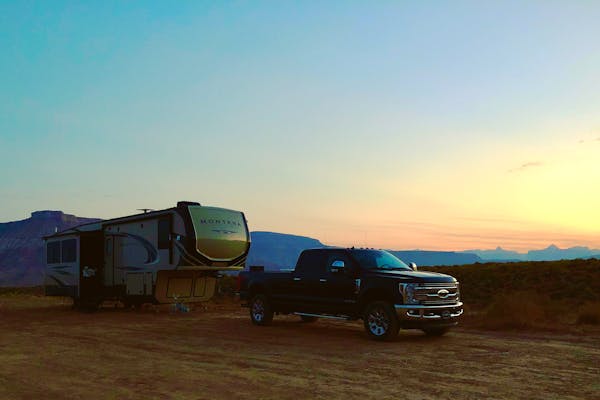Pass-Through Parking Lots
Pass Through Parking Lot Highlights: Empty lots, close to or on your route. Good to know about in case of an emergency or if needed at the last minute. Convenient and free.
Don't overlook a free parking lot if you are on a long trip or simply need a last minute place to stay. The same boondocking rules apply for parking lots (no hook-ups and limited number of days), but you are usually much closer to amenities. Parking lot camping provides an even, stable area to set your RV and lay your head. The grounds are typically maintained, with simple access, which makes this an easy option to keep yourself close to the road and on-schedule.
Some popular, free parking lot camping destinations include Cracker Barrel, Cabela’s, Bass Pro Shop, Walmart, and highway truck stops.
Pro Tip: You may have heard that you can always park at a Walmart but some towns actually prohibit overnight camping. It’s always best to call the exact location to confirm overnight availability.
Other Camping Destinations
Other Destination Highlights: These include Harvest Hosts, military bases and moochdocking. Limited access and mostly used for short-term stays, but highly convenient and lower costs.
Harvest Hosts: Harvest Hosts is an RV membership that provides unique access to a wide variety of locations, including farms, wineries, breweries, and golf courses. The membership fee is $99 per year, and offers RVers unlimited access to stay overnight at any Host’s location. And while Harvest Hosts may have a maximum stay of 24 hours, it’s still a great way to get a feel for a town or area, without driving too far off-course.










